You are here
New Releases
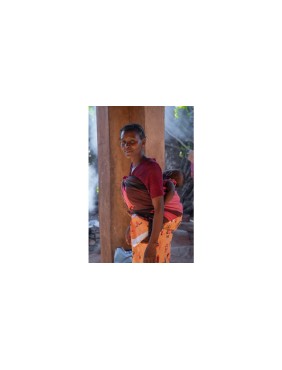
Zimbabwe's Journey in Fulfilling the International Conference on Population and Development Commitments
Zimbabwe has been implementing the Programme of Action (PoA) of the International Conference on Population and Development (ICPD) which was adopted by 179 countries in 1994, in Cairo. Periodic reviews have been conducted since then to assess progress, identify gaps and challenges, and to advocate for policy changes in order to achieve national development goals and priorities in line with the principles and commitments reflected in the ICPD PoA.
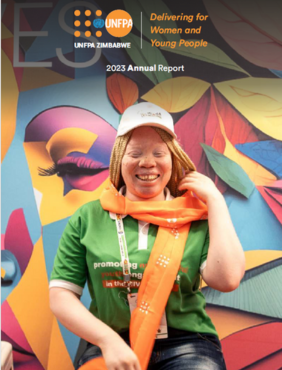
UNFPA Zimbabwe 2023
As we reflect on 2023 we mark a significant milestone - the second year of implementing the United Nations Population Fund 8th Country Programme of Cooperation with the Government of Zimbabwe (2022 - 2026). This program cycle guides our efforts to ensure that every woman, adolescent girl, young person and marginalised groups in Zimbabwe have access to Sexual Reproductive Health (SRH) information and services and the power to make informed choices about their bodies and future. Significant results and milestones were achieved in 2023.
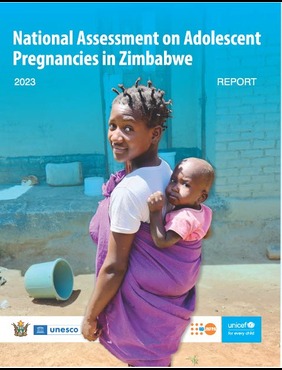
National Assessment of Adolescent Pregnancies in Zimbabwe
This report highlights key findings from the national assessment of adolescent pregnancy in Zimbabwe. The study was conducted to determine the prevalence of adolescent pregnancy in Zimbabwe and to identify root causes leading to adolescent pregnancy particularly in the wake of COVID-19. One of the objectives of the study was
to develop detailed profiles of a cohort of adolescents who experienced pregnancy before the age of 20, to provide a deeper understanding of their experiences and needs and map the much-needed support to tackle adolescent pregnancy and support adolescents who fall pregnant.
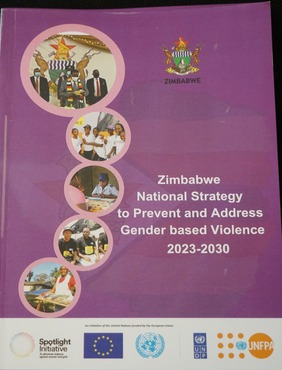
Zimbabwe National GBV strategy 2023 to 2030
Although significant progress has been made towards the reduction and ultimately elimination of GBV and harmful practices, significant challenges remain. These include among others: insufficient implementation of GBV related laws and policies owing to weak accountability mechanisms; human and financial resources capacity constraints among GBV stakeholders and service providers; pervasive patriarchal values, attitudes and practices; inadequate funding of the GBV national response; weak coordination of the national GBV response; and limited awareness of GBV laws, rights and availability of services leading to poor help seeking behaviour. It is against this backdrop that this National GBV Strategy provides a guiding framework for the national response to Gender Based Violence (GBV) in Zimbabwe.
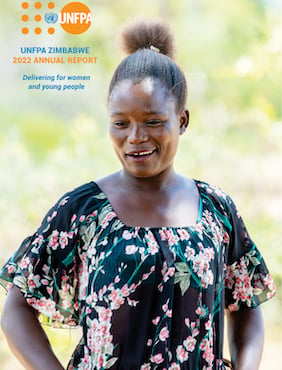
UNFPA Zimbabwe 2022 Annual Report
This report highlights results that UNFPA and partners achieved in promoting access to SRHR for women, girls and young people in Zimbabwe. It is our hope that you will find this annual report engaging as you read about the various efforts, successes, challenges and learnings we have had as a Country Office as we strive to reach women and young people with critical SRH and GBV services and information.
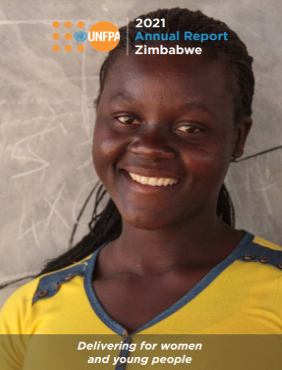
UNFPA Zimbabwe 2021 Annual Report
In 2021, despite the COVID-19 pandemic and other challenges, the United Nations Population Fund (UNFPA) in Zimbabwe continued to deliver for women and young people on the Sexual and Reproductive Health and Rights (SRHR) agenda with generous support from our partners. COVID-19 presented challenges but it also opened up new opportunities and innovations and prompted us to be more agile and think more broadly.
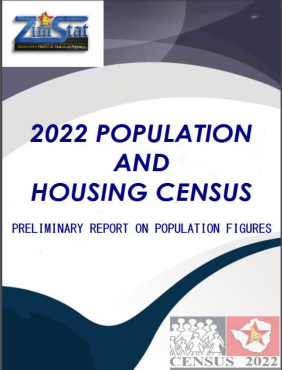
2022 Population and Housing Census Preliminary Results
Zimbabwe has released the 2022 Population and Housing Census Preliminary Results which has shown, among other things that Zimbabwe's population has increased by 16.2% and now stands at 15.1 million people from the 13 million people in the last census in 2012. This gives an annual population growth rate of 1.5%. The population of Zimbabwe as at 20th April 2022 was 15 178 979, of which 7 289 558 (48 percent) were male and 7 889 421 (52 percent) were female, giving a sex ratio of 92 males for every 100 females. Given the 2012 population size of 13 061 329, this gives an annual population growth rate of 1.5 percent. The population constituted 3 818 992 households, giving an average of 4 persons per household. Given a land area of 390,757 square kilometres, the resultant population density stood at 39 persons per square kilometre.
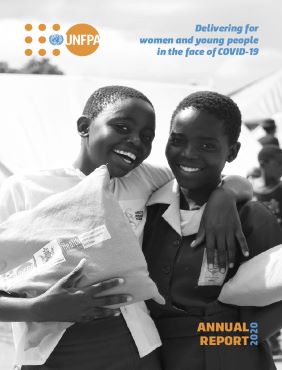
UNFPA Zimbabwe 2020 Annual Report
In 2020, UNFPA worked with the Government of Zimbabwe and other implementing partners who contributed immensely to ensuring access to reproductive health services for all despite several challenges faced during that period, crowned by the COVID-19 pandemic in the last year of the 7th Country Programme (2016 – 2021). The pandemic posed unprecedented challenges for UNFPA programming, requiring us to relook at interventions and become more agile and innovative to ensure continuity with the delivery of critical and essential services for Gender Based Violence (GBV) survivors as well as continued access to reproductive health services for women and young people. With the national lockdown and associated travel restrictions, many people, particularly women and girls found it difficult to access both GBV and SRH services.
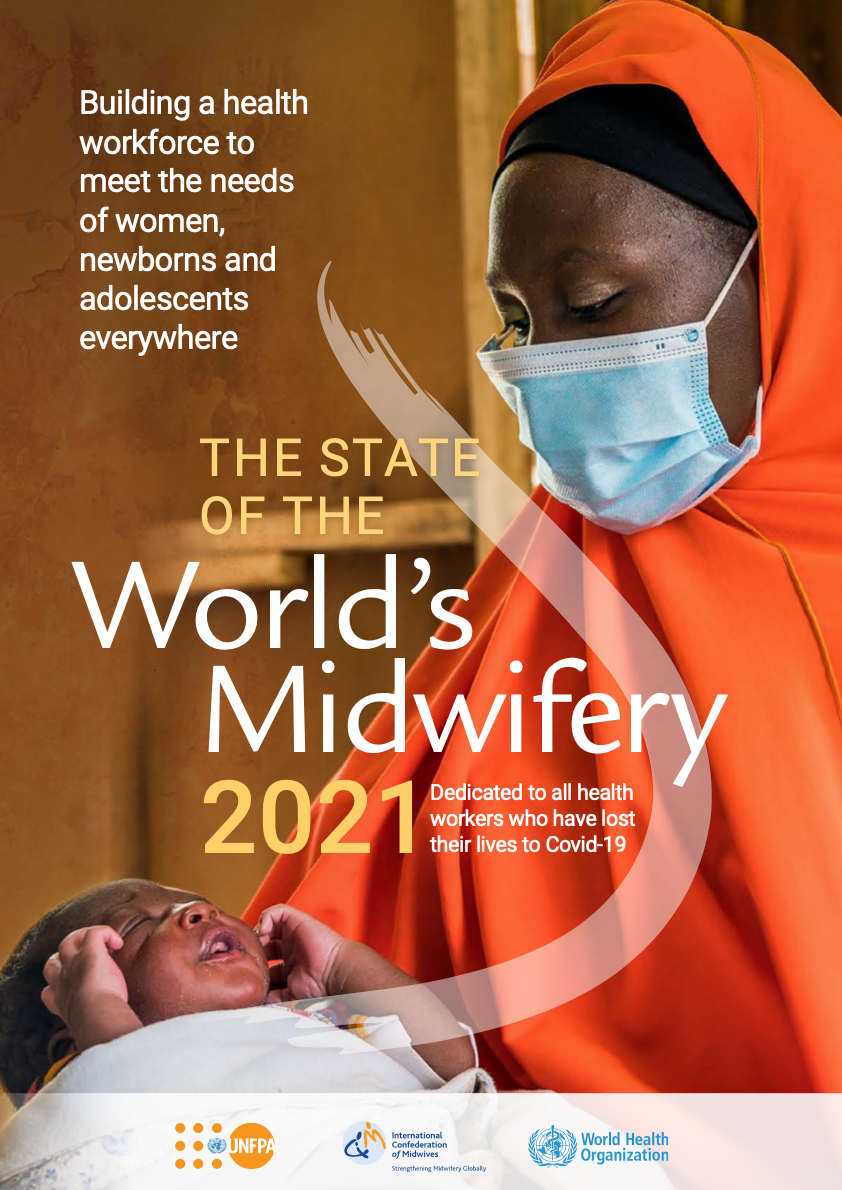
The State of the World's Midwifery 2021
The State of the World’s Midwifery 2021 builds on previous reports in the SoWMy series and represents an unprecedented effort to document the whole world’s Sexual, Reproductive, Maternal, Newborn and Adolescent Health workforce, with a focus on midwives. It calls for urgent investment in midwives to enable them to fulfil their potential.
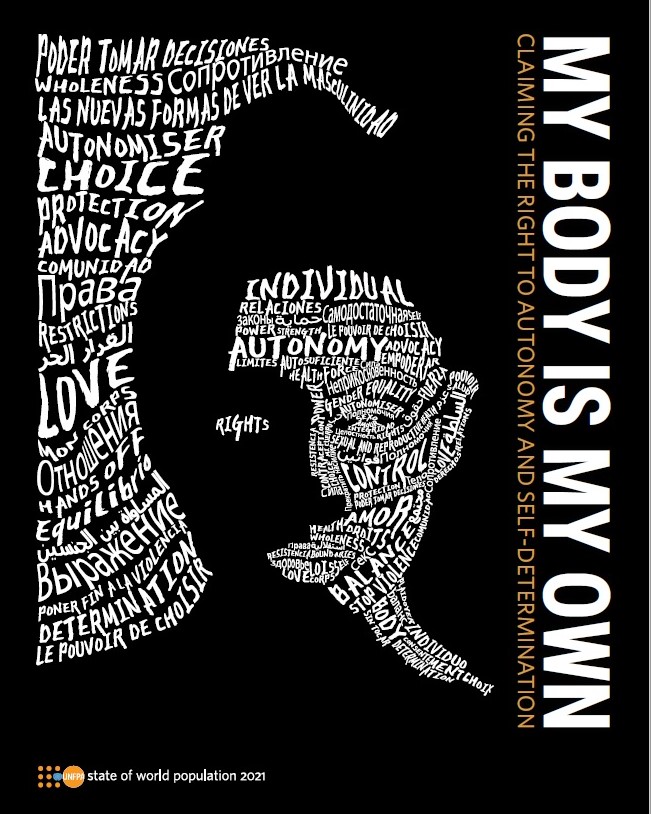
State of the World Population Report 2021
The State of the World Population (SWOP) is a report analyses developments and trends in world population and demographics. The report entitled: “My Body is My Own” shows that many women and girls are denied the right to decide whether to use contraception or seek health care, among many other issues cited in the report.